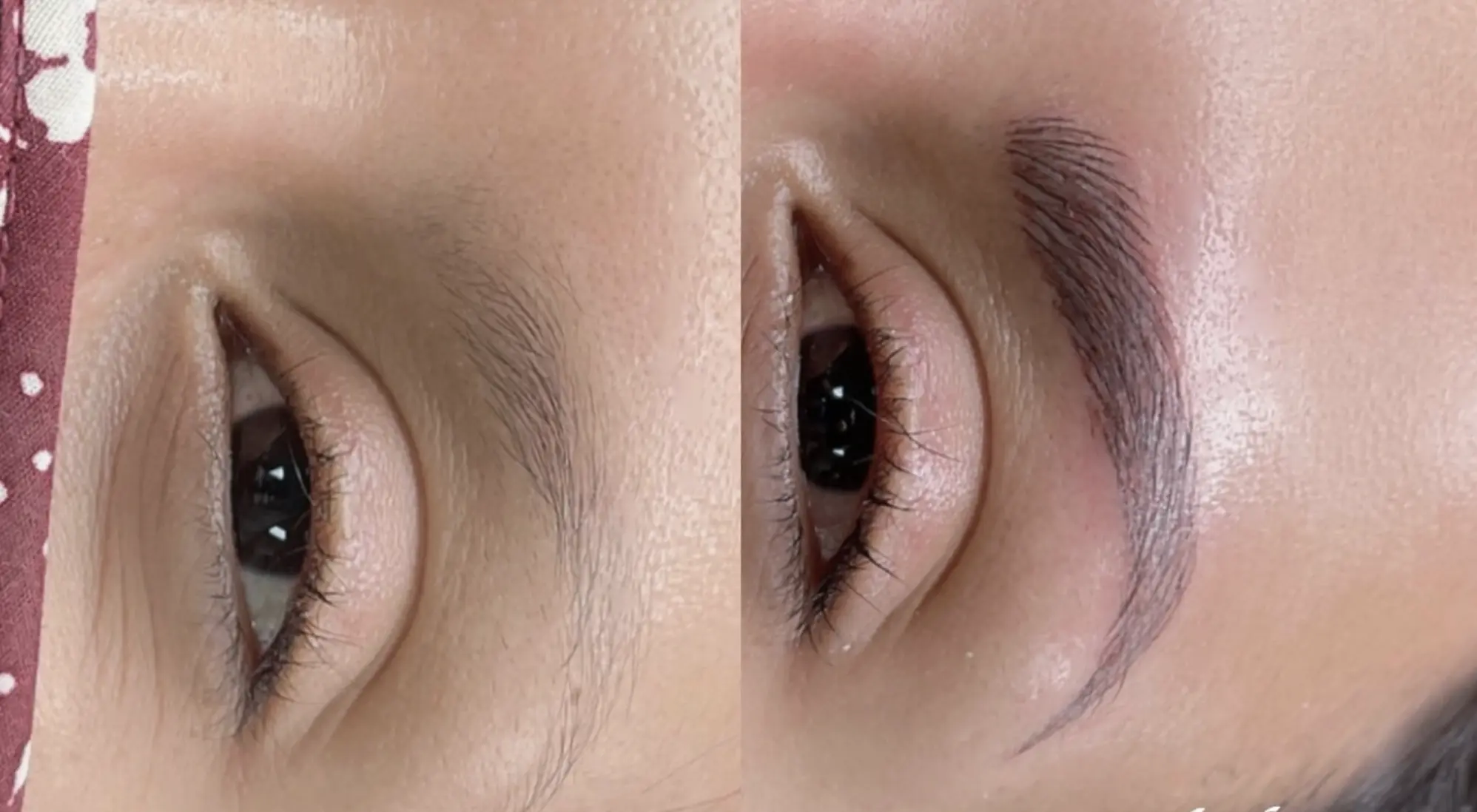Cosmetic Tattoo Melbourne, including lip blush tattoo, eyebrow tattoo and permanent eyeliner has become the go to for those looking for a semi-permanent solution to enhance their beauty routine. Whether you’re looking for fuller natural looking brows, a lip tint for added colour or the convenience of permanent makeup these treatments are very appealing. But it’s not uncommon to feel “off” or weird after your tattoo appointment. From physical reactions during the healing process to emotional adjustments there are many reasons why you might feel this way. This article dives into the world of cosmetic tattooing to help you understand and manage any discomfort during your healing journey.
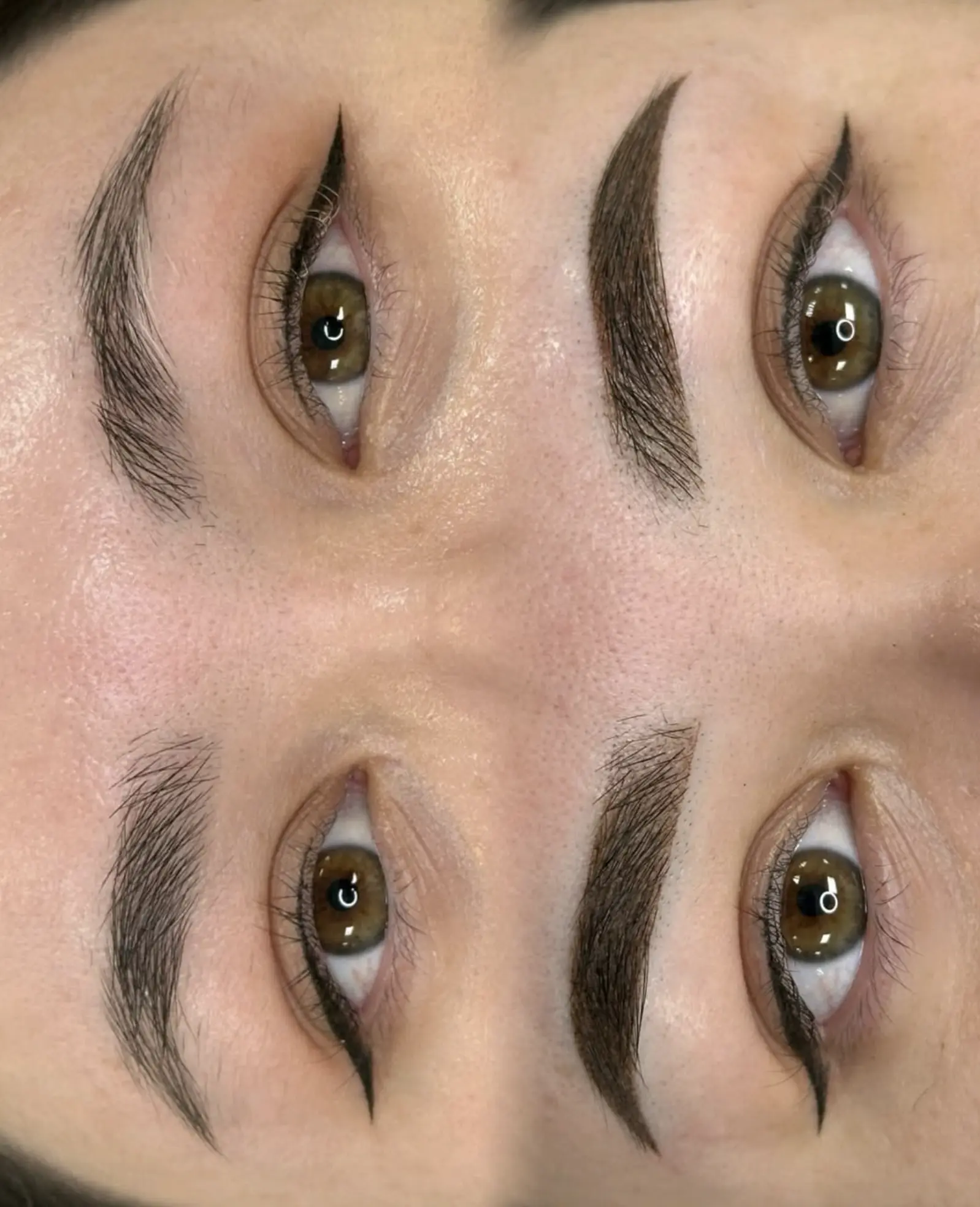
The Healing Process and Initial Reactions
The initial healing period after a cosmetic tattoo procedure is a rollercoaster, physically and emotionally. Everyone’s experience is different depending on their skin type, the treatment area and their body’s healing response.
Stages of Healing
The healing journey for treatments like Lip Blush tattoo, permanent eyeliner or freckle tattoos typically looks like this:
- Day 1–2:
After the actual tattoo procedure the area may feel tender, tight or slightly swollen. For example lip skin is very delicate so lip tattooing can feel more intense than other areas. Mild swelling is normal and can last a few weeks. - Day 3–7:
Scabbing and peeling starts as the body produces lymphatic fluid to heal the area. This stage can be uncomfortable but don’t pick at scabs as this can cause uneven pigment retention. - Day 8–28:
As the skin regenerates the pigment may look uneven or lighter than expected. This is normal and will resolve with time especially after a follow up appointment at the 4–8 week mark to perfect the design.
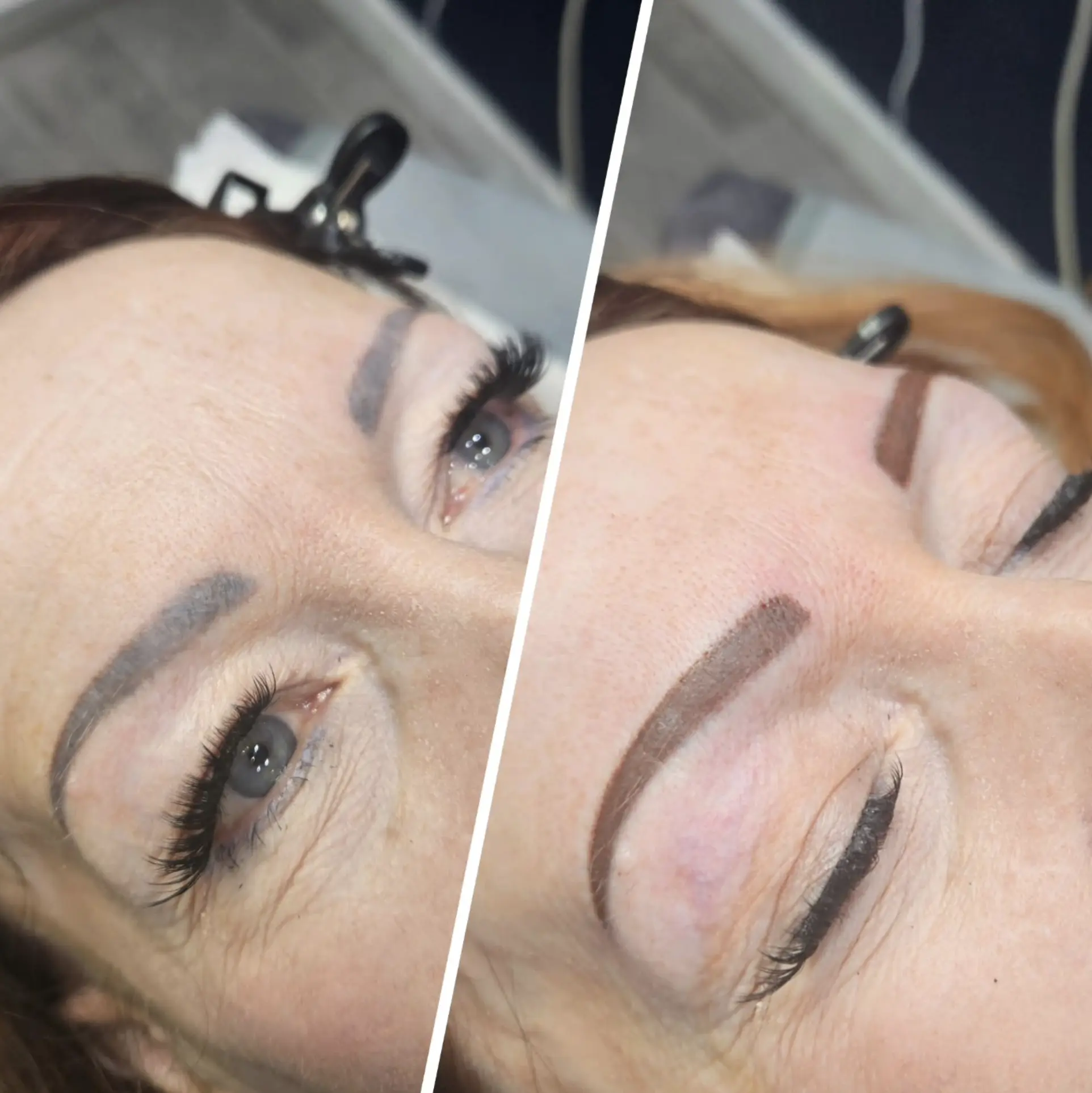
Why You Might Feel Weird After a Cosmetic Tattoo
Several reasons why you might feel strange after a cosmetic tattoo, from emotional to physical.
1. Physical
- Skin Sensitivity and Pain:
The skin is being micro-traumatized during the tattooing process, so it’s natural to feel uncomfortable. If you have sensitive skin or dry skin types you might feel it more. - Swelling and Irritation:
Mild to moderate swelling is normal, especially for Lip Blush tattoo and permanent lip liner treatments. Swelling can feel weird if you’re not used to it, especially in sensitive areas like the lips or eyes. - Adverse Reactions:
Although rare, allergic reactions or bad reactions to cosmetic tattooing pigments can happen. Symptoms are abnormal swelling, redness or irritation and should be seen by a board certified dermatologist. - Risk of Infection:
Poor aftercare can lead to a bacterial infection. Make sure you follow your artist’s aftercare instructions and use the recommended aftercare salve or babies aftercare gel.
2. Emotional
- Post-Treatment Anxiety:
Many clients get anxious about the healing result, especially during the scabbing phase when the pigment may look uneven. Just trust the process and wait for the stages of healing to complete. - Body Dysmorphia:
A change in your appearance, even a good one, takes time to get used to. Some clients feel uneasy seeing blush tattoos, arched brows or a new lip tinting treatment. - Regret or Overthinking:
It’s normal to feel temporary regret or overthink the design with makeup especially if the pigment looks darker during the first few days.
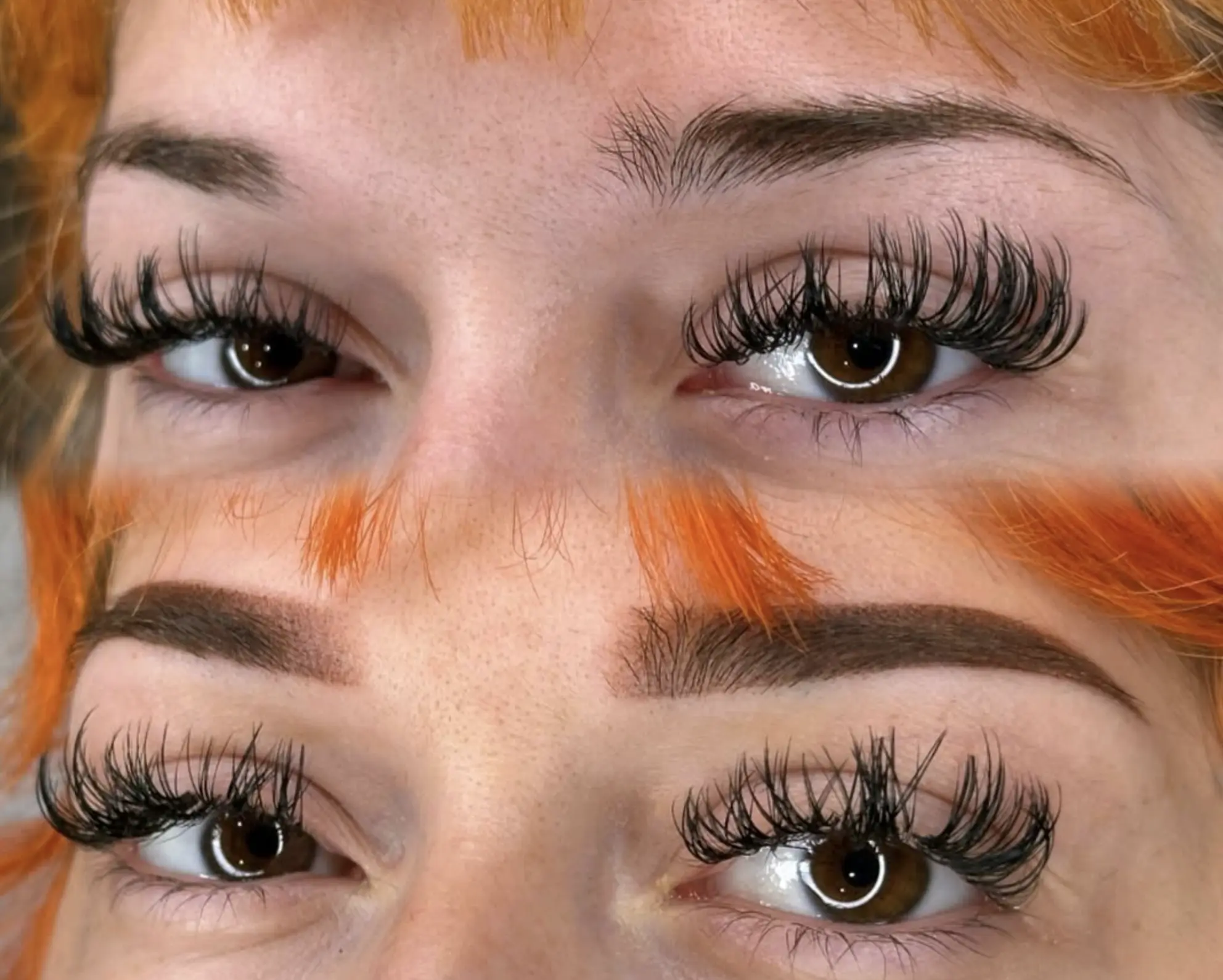
Factors Affecting the Healing Process
Your healing journey depends on:
- Skin Type:
Oily skin types may fade faster than dry skin types, so you may need more frequent maintenance touch ups or color refreshers. - Keloid Scars and Acne Scars:
If you have keloid scars or acne scars, consult your tattoo artist or dermatologist before getting tattooed, as these can affect the results. - Health Conditions and Medications:
Conditions like diabetes or medications such as antiviral medication or anti-inflammatory medication can affect how fast your skin heals. - Correct Needle Size and Single Use Needles:
The cosmetic tattoo artist technique, including the use of the right needle size and sterile single use needles, is key to minimizing complications.
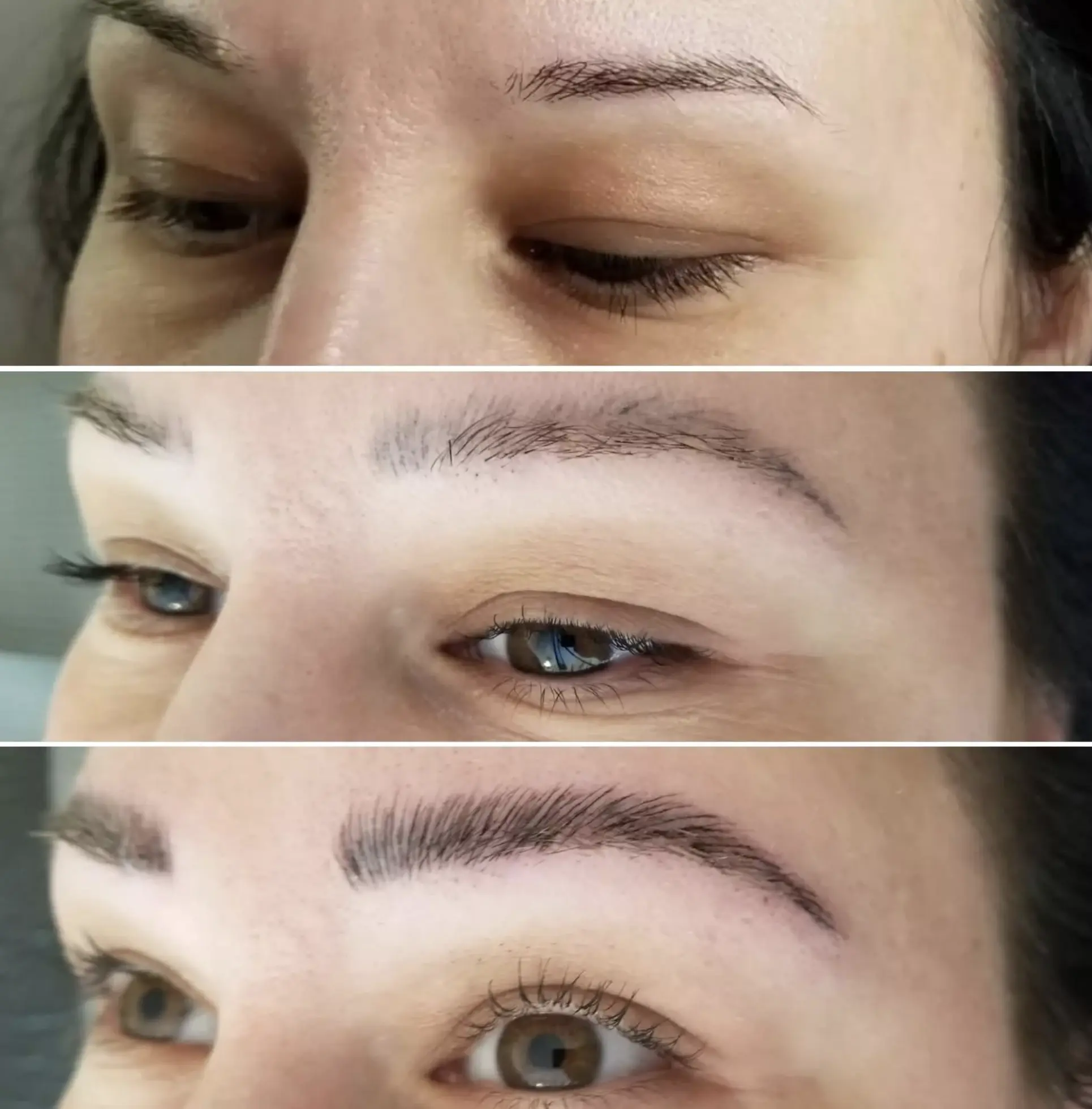
If you’re feeling icky during the healing process these can help:
- Follow Aftercare Guidelines:
Stick to the aftercare routine, apply the aftercare salve or healing gel and don’t get the tattooed area in the sun, water or dirt. - No Extra Makeup:
Don’t put extra makeup on the tattooed area during the initial healing period as it can interfere with pigment retention and increase the risk of infection. - Stay Hydrated:
Drink water helps with skin regeneration and reduces dryness or irritation. - Book Touch-Ups:
A follow up appointment is required for optimal pigment saturation and to address any uneven areas. - Consult Professionals:
If you have an adverse reaction don’t hesitate to contact a board certified dermatologist especially if you experience severe itching, hives or persistent redness.
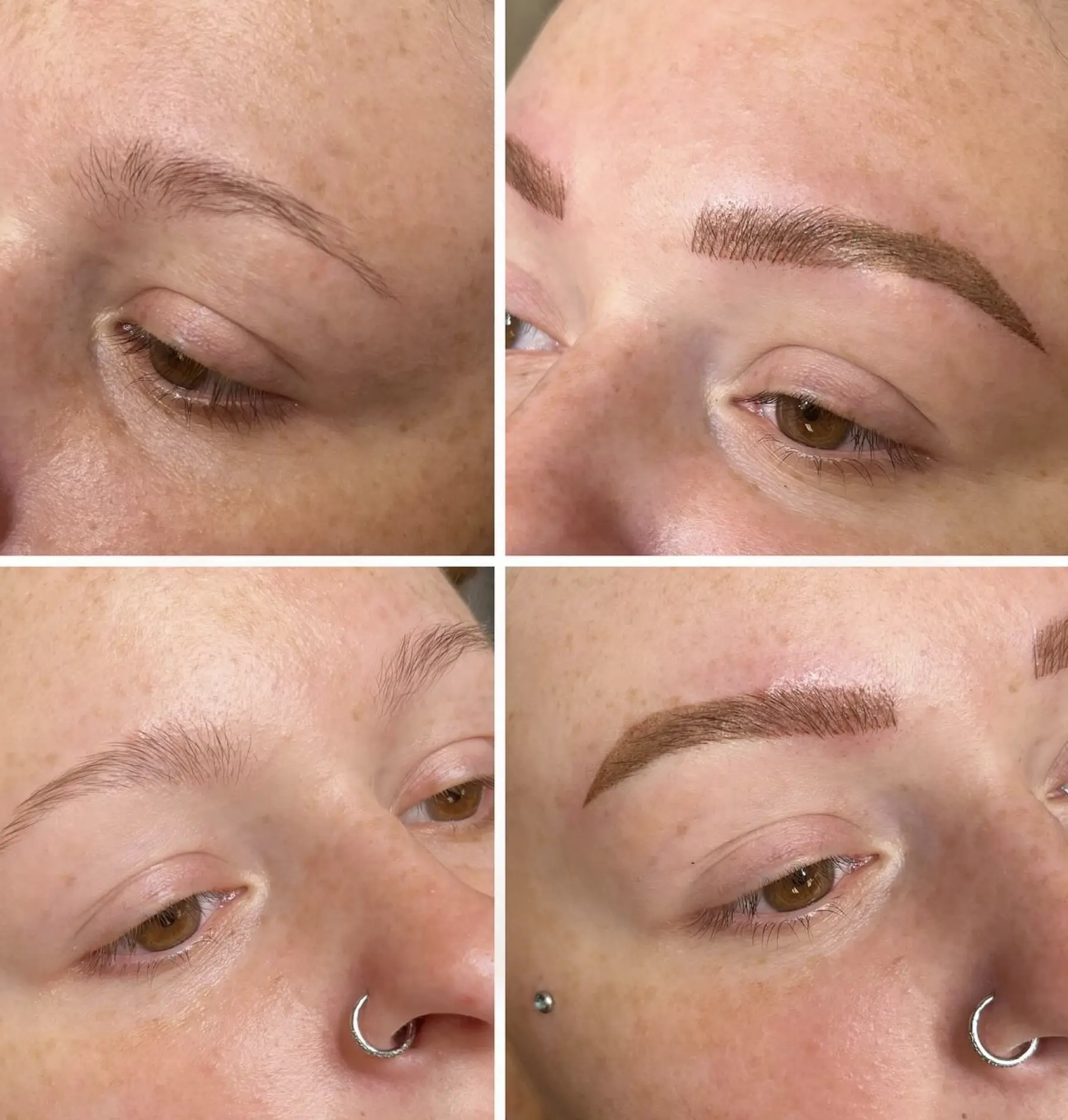
What to Avoid During Healing
To get the best results avoid:
- Swimming: Chlorine and bacteria can irritate the tattooed area.
- Laser Removal or Chemical Peels: Avoid treatments like laser removal, laser treatment or chemical peels near the tattooed area.
- Touch or Pick Scabs: This can cause uneven pigment retention or scarring.
Choosing the Right Tattoo Artist
An experienced and skilled cosmetic tattoo artist or brow artist is key to a good result. Look for an award winning permanent makeup studio or a beauty cosmetic tattooing specialist with a portfolio. Someone who knows about skin tone, oily skin and all the nuances of cosmetic tattooing can make all the difference.
Conclusion
You will feel weird after a cosmetic tattoo. Whether it’s the physical healing process, emotional adjustment or worries about the outcome, knowing what to expect helps. By following aftercare instructions, trusting your cosmetic tattoo artist and giving time for results to settle you’ll be enjoying your new permanent makeup in no time.
FAQ
How long is the initial healing time?
7-14 days is the initial healing time but full healing and pigment settling can take up to 6-8 weeks.
Can I wear makeup over the tattooed area?
No, don’t wear makeup over the tattooed area during the healing process to prevent infection.
Are adverse reactions to pigments common?
Reactions to cosmetic tattooing pigments are rare. If you experience swelling, redness or itching see a board certified dermatologist.
How does skin type affect the healing process?
Oily skin may fade faster, dry skin may peel more. Your cosmetic tattoo artist will adjust the treatment to your skin type.
What if I don’t like it?
Laser removal or maintenance touch ups can help. Talk to your tattoo artist.

